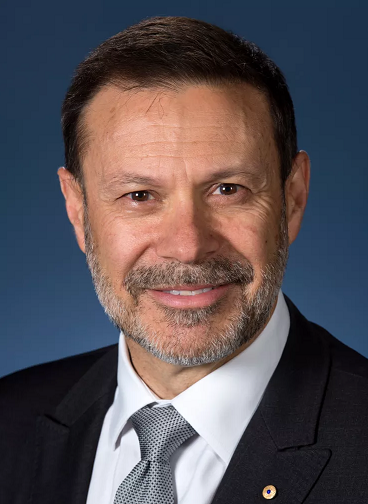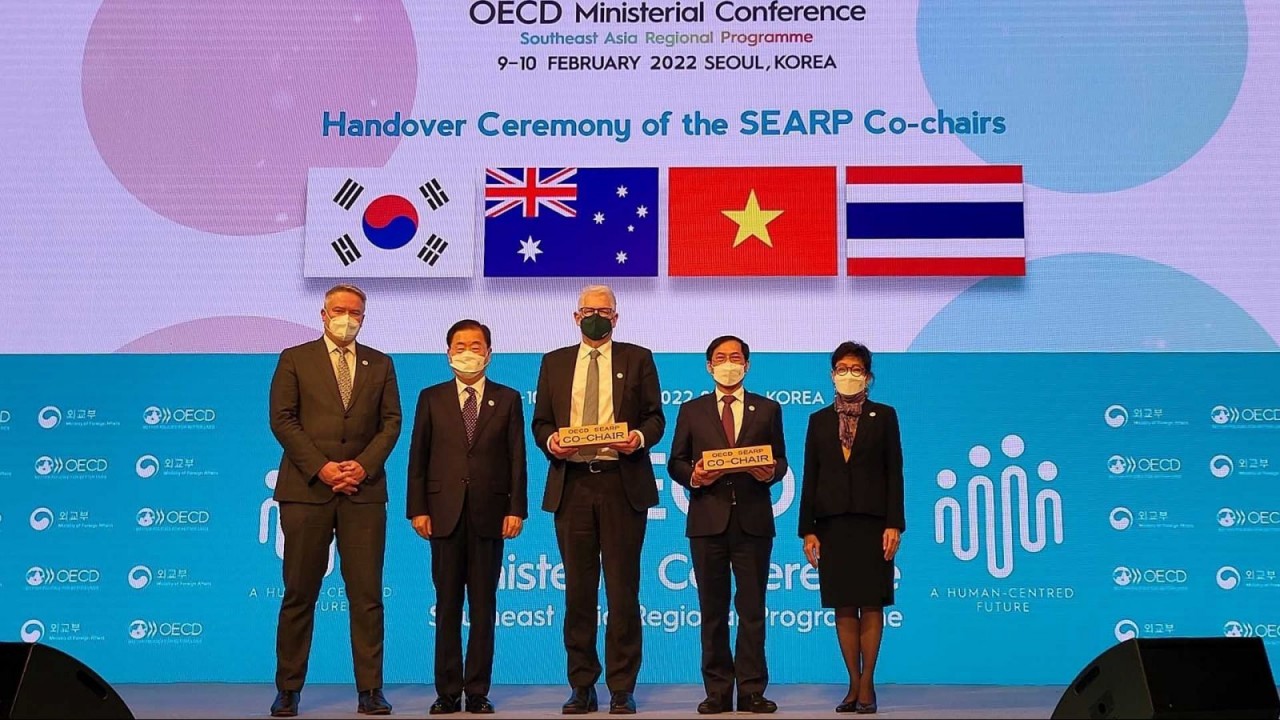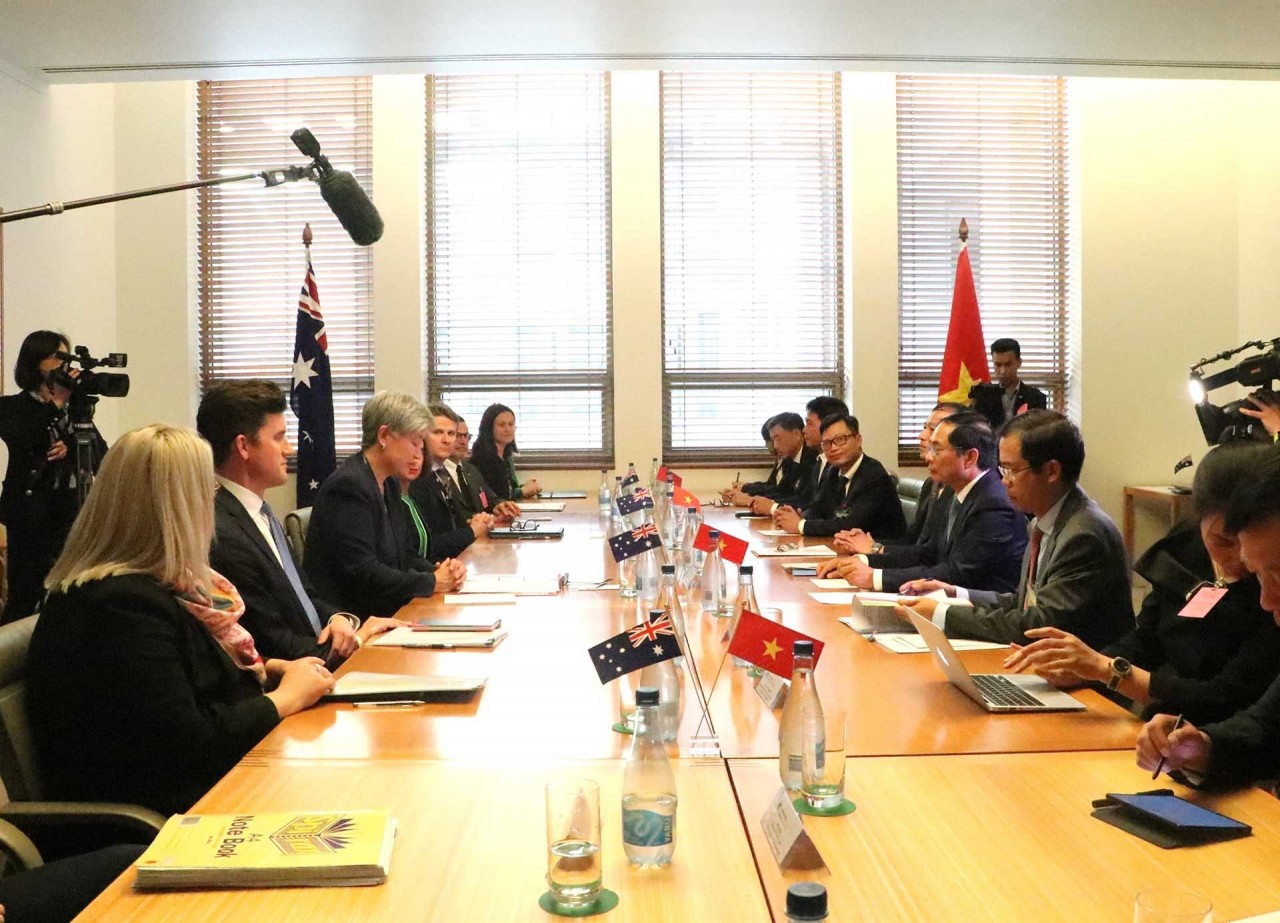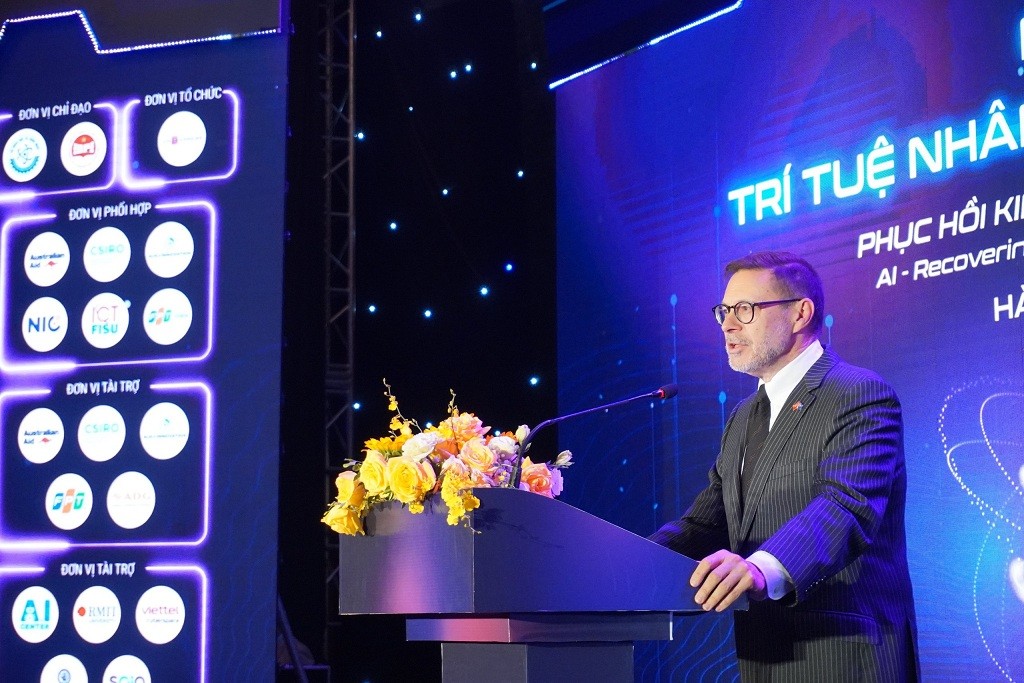
Australia want to work with Vietnam to increase the OECD’s focus on ASEAN
Latest
 |
| Australian Ambassador to Vietnam Andrew John Lech Goledznowski. (Source: Australian Embassy in Vietnam) |
Vietnam and Australia are co-chairing the SEARP of the OECD for the 2022-2025 term. How could our two countries work together to promote SEARP's activities in making practical contributions to regional economic recovery and development?
Australia’s Assistant Minister for Trade Senator the Hon Tim Ayres and Vietnam’s Minister of Foreign Affairs Bui Thanh Son jointly chaired an OECD Ministerial Forum on supply chain resilience in Hanoi on 17-18 October.
Under the theme “Connecting Regions: Partnerships for Resilient and Sustainable Supply Chains”, the Forum explored how OECD and ASEAN countries can improve supply chain resilience to protect against future shocks. It discussed the practical measures ASEAN and OECD governments can take to improve supply chain resilience in the near term; and how OECD and ASEAN governments and business can collaborate to promote investment opportunities and improve economic resilience over the long run.
While the Forum is an important component of the OECD’s ongoing SEARP, it is just the first step in Australia’s partnership with Vietnam in chairing the Program. Over the three-year period to 2025, we want to work with Vietnam to ensure the SEARP delivers practical results for both sides.
The OECD is a globally leading source of advice, standards and best practice on economic and social policy, and Australia has derived significant benefits from its fifty years of membership. We want to work with Vietnam to increase the OECD’s focus on ASEAN and Southeast Asia, so we can make this advice and technical assistance more readily available to the region.
But this should not be a one-way process. ASEAN is at the centre of regional economic integration and development and plays a vital role in driving global growth. We want OECD members to learn more about ASEAN priorities and practices, including so that the OECD can provide support and advice that is useful and appropriately targeted to the region’s needs.
Australia and Vietnam are also committed to amplifying private sector voices in SEARP, recognising that it is business that will drive economic recovery. Renewed business-led engagement from Southeast Asia and the OECD will support SEARP’s work in domestic reform priorities, strengthen regional integration and promote connectivity efforts.
OECD and Southeast Asian countries are seeking to promote cooperation in digital and green transformation. What do you think about this trend? How do this affect Vietnam-Australia relations? What are some opportunities and challenges?
The OECD-Vietnam High-level Economic Forum on 18 October focused on attracting quality foreign direct investment for the digital and green transitions. The OECD is well-placed to support this crucial objective by developing and promoting standards and policies that support high-quality investment.
Policies that provide transparency and predictability for investors will be vital in attracting the trillions of USD that will be required to drive these transformations. Australia would like to see the region draw closer to OECD standards and instruments in this regard.
As for the Vietnam-Australia bilateral relationship, a key shared priority is climate change and energy transition. Australia and Vietnam share a focus on developing practical, scalable solutions to reach net zero emissions, while partnering with other countries to decarbonise and support the growth of our economies.
We share challenges and know that the energy transition for both our countries will not be easy. We share a legacy of dependency on coal fired power generation; and rapidly increasing renewable energy generation. There is also a need for significant investment in the power grid to support high shares of renewable energy.
Australia is committed to working in a practical way to support Vietnam to make this transition, including leveraging our existing development cooperation program, identifying new technology-based solutions and helping Vietnam mobilise the finance it needs to help it meet its ambitious targets.
Another emerging area of cooperation is in digital transformation. Harnessing technological change, adapting to its disruption, and leveraging its opportunities will be vital to economic recovery and growth. An issue at the forefront of both Australia’s and Vietnam’s policies.
We collaborate with Vietnam and support digital transformation efforts together at all levels: government to government, research institution to research institution, industry to industry, and people to people. For example, our flagship Aus4Innovation program supports Vietnam’s technological transformation by building a stronger national innovation system. We are also working closely with Vietnam across the digital economy, including through expanding digital trade links, greater participation in the digital economy, and supporting e-government.
 |
| Vietnam and Australia assume the co-chair positions of the OECD-run SEARP for 2022-2025. (Source: VNA) |
Last year, the two countries announced the Vietnam-Australia Enhanced Economic Engagement Strategy (EEES). How has this initiative been implemented?
Australia’s economic relationship with Vietnam is dynamic and growing. Our economies are complementary - we are partners more than competitors. Australia is a reliable supplier of the services and raw materials that Vietnam’s exporters require, and Australian consumers enjoy Vietnam’s high-quality products in their homes and workplaces
The EEES released in 2021 sets out a vision for how Australia and Vietnam can work towards becoming top ten trading partners and doubling two-way investment. It is unique and the first of its kind for Vietnam and Australia – being jointly drafted and reflective of our mutual interests. The EEES is practical and outlines a series of mutually beneficial initiatives to deepen trade and investment links in key sectors, including across agriculture, education, energy, services and the digital economy.
We are working closely with Vietnam to implement the EEES, with initiatives underway and delivered through Australian and Vietnamese government agencies, business, and peak-bodies. This includes an 2.6 million AUD Economic Engagement Grants Pilot Program supporting 28 projects focused on enhancing economic ties and encouraging greater business investment; the establishment of the Australia Vietnam Policy Institute, the first policy institute in Australia dedicated to the Vietnam relationship; and the appointment of Australian and Vietnamese Business Champions to accelerate business engagement, trade and investment. Business Champions events have been held across Australia and Vietnam.
The EEES is helping realise the enormous economic potential that exists between our countries, and we are excited about further enhancing our economic relationship as we draw closer to the 50th anniversary of diplomatic relations in 2023.
 |
| The fourth Vietnam-Australia Foreign Ministerial Meeting in Canberra, Australia, on September 12. (Source: VNA) |
In your opinion, what advantages does Vietnam have to promote to strengthen its position in the global value chain (GVC)? How should Vietnam take advantage to increase its position in the GVC?
Vietnam faces both opportunities and challenges to strengthen its position in the GVC. Vietnam’s pursuit of export-orientated trade policies and economic integration has been central to the country’s growth and development success.
Vietnam’s economic expansion in recent years has been underpinned by robust domestic demand and global demand for its manufacturing exports, with manufacturing making up around a third of Vietnam’s GDP and 85% of Vietnam’s merchandise exports. Vietnam’s rapid economic growth has, in part, been underpinned by a progressive women’s workforce participation rate. Vietnam has one of the highest female labour force participation rates in the world.
Integration into regional and international economies, including participation in 15 bilateral and regional free-trade agreements has also enabled Vietnam’s place in the GVC. Global economic integration has spurred a fast-paced domestic reform agenda.
Vietnam has developed policies and incentives to improve information technology systems, encourage innovation, and promote businesses’ participation in high-tech GVCs. While traditional manufacturing sectors, such as apparel, footwear, food, and furniture, remain the leading exporting industries in Vietnam, there has been strong growth in Vietnam’s exports from the high-tech sector, including computer, electronics and optical products. The application of advanced technologies has greatly enhanced the competitiveness of Vietnam’s manufacturing sector.
However, Vietnam faces several constraints, such as high logistics costs, under-developed domestic supply chains, and a lack of production scale and skilled labor force, which could limit its potential to deepen GVC integration. Continued reforms are needed, to boost productivity and to escape the middle-income trap, as Vietnam’s existing labour-intensive growth model will come under pressure from rising wages, an aging population, digitalisation and automation.
Thank you!
 |
| Australian Ambassador to Vietnam Andrew John Lech Goledznowski gives speech at Artificial Intelligence for Vietnam event on September 23. (Source: aus4innovation) |





















